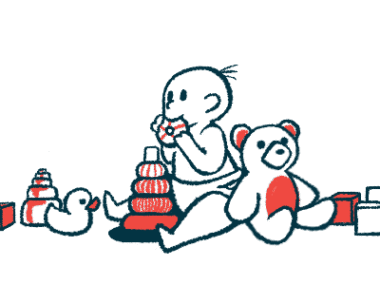Enrollment to Start Later This Year in MONARCH Trial Testing STK-001 for Dravet
Written by |

Stoke Therapeutics plans to begin enrollment later this year of Dravet syndrome patients for part A of its Phase 1/2a MONARCH trial to evaluate the investigational therapeutic STK-001, according to a press release.
Most people with Dravet syndrome have mutations in one of the two copies (one from each biological parent) of the SCN1A gene. STK-001 is an investigational therapy designed to increase protein production from the non-mutated copy of SCN1A, thereby rectifying the lack of functional protein that ultimately causes the disease. This strategy of increasing non-mutated gene expression is the basis of Stoke’s proprietary TANGO technology.
Studies in mouse models of Dravet syndrome have supported the efficacy of STK-001, and the medication was granted orphan drug status by the U.S. Food and Drug Administration (FDA) in mid-2019.
More recently, Stoke announced that the FDA had given clearance to begin dosing in part A of the MONARCH clinical trial. This trial is evaluating STK-001 in children and adolescents, ages 2–18 years, with Dravet syndrome.
Part A of the study will test two comparatively low doses of STK-001. Part B, which will evaluate higher doses, is currently on partial clinical hold, pending further preclinical data about STK-001’s safety.
“I am incredibly gratified by the focus and determination of our employees during these challenging times,” said Edward M. Kaye, MD, Stoke’s CEO. “Thanks to their unwavering commitment to patients, we are continuing to make progress with STK-001 and are on track to enroll and dose the first children and adolescents with Dravet syndrome in the Phase 1/2a Monarch study later this year.”
Stoke has not experienced any delay in initiating Monarch, according to the press release.
“To help mitigate the impact of COVID-19 to our clinical trial, we are pursuing innovative approaches such as remote monitoring and remote patient visits,” the company stated. “We continue to anticipate preliminary data from the study in 2021.”
In addition to MONARCH, Stoke is also supporting another clinical study called BUTTERFLY. This is an observational study of children and adolescents with Dravet syndrome, meaning participants are not being given any treatment, but are instead monitored to evaluate the natural course of the disease. Data from BUTTERFLY will be used to inform clinical development of STK-001.
Enrollment in BUTTERFLY has slowed with the ongoing COVID-19 pandemic but patients currently enrolled are continuing to be followed, Stoke announced.
The company also stated that it has sufficient resources on hand to support operations through 2023, and is working toward the development of therapies for other conditions based on its TANGO technology.
“Our understanding of the potential for our TANGO technology in additional genetic diseases has continued to advance and we are generating data that we believe will support the nomination of a second preclinical candidate in the second half of 2020,” Kaye said.





